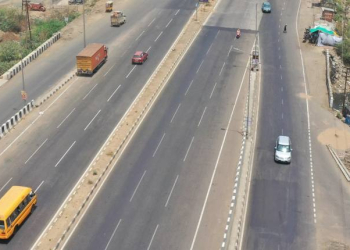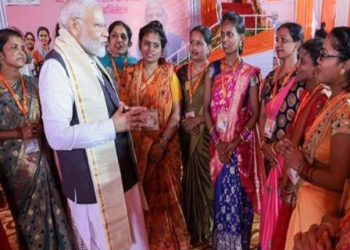Chhatarpur (Madhya Pradesh): With the onset of summer the discussion over the water crisis in Bundelkhand comes to light again. This has become a golden opportunity for people with vested interests to swindle state funds meant for ending water scarcity in the parched land of Bundelkhand.
This time too, the situation is somewhat similar compared to past several years because since the last decade crores of rupees were allocated from the state budget to end the water crisis in this region but successive governments failed to fix accountability for misusing this money meant to provide water to households in the Bundelkhand region.
Bundelkhand comprises seven districts each of Uttar Pradesh and Madhya Pradesh.
The seven districts of Madhya Pradesh include: Sagar, Damoh, Chhatarpur, Panna, Tikamgarh, Niwari and Datia.
In the past, Bundelkhand had abundant water because there was a lot of emphasis given on water structures during the Chandela and Bundela rulers. At present, the situation is the reverse and there are numerous incidents related to water crisis which come to the fore in large parts of the area.
As soon as the summers begin and one enters majority of the rural areas, water crisis is rampant. People gather at various water sources everywhere waiting to collect water to quench their thirst.
However, repeated efforts have been made to end the water crisis in the Bundelkhand region. During the year 2007-08, Rs 3,500 crore were allocated under the Bundelkhand package from the state budget but the situation remains far from change since a large amount of money was not utilised for the concerned purpose.
At the same time, the ponds and water structures that were built, collapsed during the second and third spell of rainfall.
Pawan Ghuwara, a social worker who protested against the misuse of the Bundelkhand package, says 1,296 structures were built under this package in the area. Upon inspection it was found that 1,098 structures were found unused and no action was taken against those government officials responsible for the misappropriation of funds and checking whether these structures were functional.
The Madhya Pradesh government must run bulldozers against the corrupt government officials similar to action against criminals otherwise such water campaigns will serve nothing but a source of looting money meant for ending water scarcity in Bundelkhand.
According to experts, in the last four decades, several thousand of crores of rupees have been spent in Bundelkhand region in the name of water, but it is hard to find any village which has abundant water throughout the year or does not face water crisis. Several campaigns were run to save ponds, rivers etc but the construction of new ponds did not go beyond paperwork.
Chief Minister Shivraj Singh Chouhan has once again announced to run the ‘Jal Abhishek Abhiyan’ under which water structures will be repaired and revived. There is still an apprehension in people’s mind that the government will approve the budget meant for the parched region and people with vested interests will find an opportunity to serve their own interests.
Social worker Manoj Choubey says that Bundelkhand used to be water-abundant but now water crisis has become the biggest problem here. Government campaigns are a way to siphon away money by certain people to serve their own interests. Water structures and ponds are built in such places which are of no use and are not socially audited independently.
This is the reason that despite spending thousands of crores of rupees, the water crisis of this area has not ended. The main reason for this is the lack of awareness and participation among the people.
The ‘Jal Abhishek’ campaign will start in April and the monsoon season will begin from mid-June, the burning question is how will the assessment and review of the work which has been done because the structures built will be filled with rain water. It will also become easier for the construction companies to call the pits dug by them as ponds. This happens every year and all water conservation activists and construction agencies take undue advantage of it.
(IANS)


















